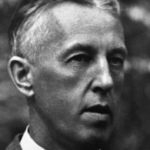What is Alcoholics Anonymous?
Millions of people from all around the world take part in Alcoholics Anonymous (AA). The purpose of this organization is to help people with alcohol addiction get and stay sober. AA is non-judgmental and everyone supports each other. Whether someone is in their first day of sobrietyIn 12-step programs, an individual is sober when they are no longer partaking in the behavior or substance to which they are addicted and living a better life following the program. Both are necessary to achieve sobriety. More or they have been sober for a long time, they can go to AA meetings. The only requirements of AA is that someone desires to quit drinking.
There are so many people who have benefited greatly from AA meetings and other 12 step programs. If you are suffering from an alcohol use disorderWhen problematic use of alcohol turns into a severe medical problem, health professionals refer to the problem as alcohol use disorder. This occurs when an elapsing brain disorder leads to an inability to curtail alcohol intake despite an increasingly significant toll on the life of the addict. Read... More or alcoholAn organic compound used in many products, most notably intoxicating drinks. Alcohol addiction is known as alcoholism. The first 12-step program was devised to deal with that malady. More addiction, you might find that AA meetings help you to quit drinking and stay sober, as well.
Alcoholics Anonymous Meetings
If you are thinking about getting sober, AA meetings might be the place for you. Women and men can attend these meetings if they have been abusing alcohol or if they are addicted to alcohol. There are different types of meetings that you could attend. Some of them are women or men only.
When attending any AA meetingAA holds regular meetings of various types to support the recovery of its members from alcoholism. In these meetings, members read relevant literature and share thoughts on their recovery. These events are designed to provide the social glue reinforcing recovery. More, you can expect it to be multi-racial, supportive, non-professional, and not political. There aren’t education or age requirements for these meetings. Anyone who wants to quit drinking can attend an AA meeting.
You can look online to find the available AA meetings in your area. There are many in-person meetings and some that are online, as well. Some of the AA meetings that are held in-person are in churches, office buildings, a park, or even someone’s home. If you can’t make it to an in-person meeting, you could always attend a meeting online. If you are travelling a lot, online meetings might be better for you. However, it is important to know that you don’t always have to attend the same meeting at the same place. You can go to an AA meeting wherever you are at.
You could attend closed AA meetings, as well. These are only for members of AA who want to quit drinking. Every AA meeting will be free.
Alcohol Abuse Statistics
If you are looking for a 12 step programA 12 step program includes 12 steps of recovery to help those struggling with substance addictions or behavioral addictions. The 12 steps are also used in programs dedicated to helping loved ones of addicts. 12 step programs include 12 step meetings where members go to share their experience strengt... More for recoveryThe process by which addicts attempt to break the hold a certain substance or behavior has on their lives. This can refer to participation in a wide variety of methods. What they all have in common, is a sense that life is improving and the addict is regaining control. More from an alcohol addiction, you or someone you know probably has an alcohol addiction or has been abusing alcohol. It might be helpful to learn that you or the person in your life are not alone.
Research shows that during 2018, 26.45% of those 18 and older said they had binge drank and 6.6% stated they were heavy alcohol users during the month of the survey. In addition, studies have shown that there are more than 14 million United States adults who have an alcohol use disorder. In addition, there were over 400,000 children from 12 to 17 years of age who had an alcohol use disorder.
Not only do millions of people have an alcohol use disorder, but over 85,000 people die in the United States every year from alcohol-related reasons.
If you or someone that you know are one of the millions who suffer from an alcohol use disorder or an alcohol addiction, there are 12 step programs available. AA meetings can help you to overcome an alcohol addiction.
Alcoholics Anonymous Sponsorship
If you are going to start going to AA meetings and join a 12 step program, one of the things that you might want is an AA sponsor. A sponsor is someone that has been using the 12 step philosophy in their own life. They have started the recovery journey and preferably have been sober for 1 year or longer. They have experience with the recovery journey and the 12 steps. With their work on overcoming an alcohol addiction, they are able to help someone else who is ready to get and stay sober. A sponsor is able to share stories of their addiction and recovery to help their sponseeAn individual in a 12-step program requires a sponsor to help them work the steps and hold them accountable for their recovery. The sponsor should be readily available when help is needed. A member with a sponsor is considered to be the sponsee. More through this journey.
According to the Alcoholics Anonymous General Service Conference, just about anyone can become an AA sponsor. There are no exams or tests that need to be passed in order to become a sponsor. The sponsor does not have to get a license or pay any fees. As long as the sponsor has some relation to the alcohol addiction recovery process and they feel they can have a positive impact on someone else’s recovery journey, they could become a sponsor.
Brief History of Alcoholics Anonymous
Alcoholics AnonymousThe original 12-step fellowship, formed in 1935, to help alcoholics, regain control over their lives. It remains the largest 12-step organization and has contributed to the sobriety of millions worldwide. Read more about Alcoholics Anonymous More is the biggest and most influential 12-step program in the world. With more than 2 million active members and operating in close to 200 countries around the world.
Bill meets Bob
In 1930’s America, alcoholism was viewed as a moral failing on the part of the addictAn individual with an unhealthy dependence on a substance or behavior. An individual remains an addict even years into recovery and must therefore remain active in recovery. Read more about drug & alcohol addiction & withdrawal at Withdrawal Info. More. Prohibition had just ended and the social stigmaEvery addiction carries with it a certain amount of disapproval, which can also lead to discrimination. This is known as stigma. This can vary greatly following the specific addiction. More attached to drinking was very strong. Most believed that recovery involved a test of willpower and nothing else. Needless to say, solutions based on blaming addicts for their faults were not particularly successful.
Bill W.Bill W., formally known as William Griffith Wilson, is a name that resonates deeply within the realms of addiction recovery and self-help. As one of the co-founders of Alcoholics Anonymous (AA), Bill W.'s life journey and struggles with alcoholism are meticulously detailed in the Big Book of AA, a f... More, a former New York stockbroker, was able to kick his alcoholism habit after reaching a spiritual awakening. He held a deep personal belief that only alcoholics can help each other kick the diseaseSome refer to addiction as a disease, comparing it to physical ailments. There are similarities, as both have a detrimental influence on body and soul and are treatable through medical means. More. He felt that bringing a message of recovery to other addicts worked both ways, it helped both those receiving the message and delivering it simultaneously.
Bill W. had been participating in the Oxford GroupA Christian movement of self-improvement, highly popular in the 1930s Its founder Frank Buchman believed all human problems derive from selfishness. The founders of AA were members and used many of the tenets of the movement for the 12-steps. More, a fellowshipThis refers to the members of AA and the bonds of support between them. It is this fellowship that allows addicts to share their stories and accept each other in a world that is not always understanding. More which discouraged drinking and emphasized the importance of a spiritual foundation in daily life. This group did not believe that sin was a moral failing, but rather looked at it as a spiritual disease. This concept would be at the heart of the work of AA and other 12-step groups.
It was through his work in this group that Bill W. came to see the importance of making a full life inventoryStep 4 recommends the addict conduct “a searching and fearless moral inventory.” This involves coming to terms with the flaws which preceded addiction and those that came as a result of it. More and reckoning with one’s misdeeds as a way of putting life back together again. Bill W. had tried to help several alcoholics before, but the process had not yielded the results he had hoped for. On a 1935 trip to Akron, Ohio, the broker experienced a serious business setback and was concerned a relapseRelapse in the context of 12-step programs refers to the act of reverting to harmful behaviors associated with addiction after a period of recovery. This return to substance use or compulsive behavior disrupts the recovery process and often leads to a resurgence of destructive patterns that the indi... More was in the offing. Therefore, he made an effort to seek out a suffering alcoholicAn individual with an unhealthy dependence on alcohol. From the perspective of AA, it is an individual who has lost control over their life due to an inability to stop drinking. More and help them.
It was then that Bill W. met local physician Dr. Bob. The Akron physician had tried many different methods of quitting unsuccessfully. However, he found that the spiritual foundation of Bill W.’s approach appealed to him and provided him with motivation and strength he had not felt before. Dr. Bob quit drinking and would not imbibe again until his death in 1950.
Spreading the Message
This first successful attempt at carrying the message illustrates the approach behind AA and the secret of its success. The outreach of one addict to another is believed to unite the two and strengthen the recovery of both.
They both worked feverishly in Akron to find other alcoholics and bring the message to them. Through the successes and failures of those early years, the first AA groupThe group is made up of addicted individuals who meet regularly to support their members in recovery. They are self-funding entities with volunteers who lead groups, handle money, and make other arrangements. More was formed. New ones quickly followed in other parts of the country.
Though they had no real organization at that point, these groups proved remarkably successful and appealing. There was true demand for a spiritual solution to the problem of alcoholism.
In 1939 the founders gave the organization its name and published the Big Book of AA which included a focused organizational doctrine. The book is most famous for laying out the 12-steps that AA and almost all other 12-step organizations look at as the central tool in recovery from addiction.
This book also included the stories of thirty members who had used the 12-step tools and had reached a better place in their lives as a result. They also opened a small office in New York to deal with all of the interest which publicity had stirred throughout the country.
The media began to take an interest. The biggest paper in Cleveland, the Cleveland Plain Dealer, was a major early supporter. This helped turn the chapter in this Ohio city into one of the biggest in the country. Meanwhile, multi-millionaire and influential philanthropist John D. Rockefeller hosted AA members in his home and made the fellowship more acceptable as a result.
Growing Pains
Thanks to these developments, the book was very popular and inquiries poured in by mail, many from people hoping to start their fellowship around North America and the world. By 1950, there were at least 100,000 members in the world. This is also when founder Dr. Bob passed away.
Though this was a remarkable achievement, the lack of hierarchy and clear rules was turning into a serious problem. The small staff in New York spent a good deal of its time trying to help groups around the world deal with their organizational problems. It also was used to publish the Grapevine magazine, which has remained in circulation ever since.
The 12-traditions were devised and released in this period as a solution to the organizational problems. They painted a path towards running the organization loosely and independently, through voluntary roles of serviceAA and other 12-step fellowships do not normally have employees. Instead, members volunteer and take roles necessary for the operation of the different groups and the larger infrastructure of the fellowship. Common roles of service include secretary, treasurer, and chairing meetings. More. The traditions have held the organization together ever since. It also provided the blueprint for the many other 12-step organizations which have blossomed since.
Bringing the Message to the World
In 1971 Bill W. died, having left AA on a very firm footing. In 1976 the third edition of the big BookThe basic text of AA was the first to methodically introduce the 12-steps. It is still the main source for meetings and is quoted in just about all AA and other 12-step literature. the Library of Congress named it one of the 88 “Books that shaped America.” Read more about the Big Book of AA. More of AA came out. The book was also put into the collections of the Library of Congress as a notable contribution to the culture and literature of the country.
In this time it also increased the intensity of its relationships with hospitals and treatmentA blanket term for concentrated efforts to help addicts transition to a healthier life. These can include any of the following (in isolation or combination): therapy, counseling, medication, harm reduction, or moderation. More facilities, to integrate the 12-step concept into the recoveries of millions worldwide.
Today there are over 2 million members, with groups in the vast majority of the countries in the world. The major triumph behind the fame and success of the group is that alcoholics everywhere know that there is help available for them.
Alcoholics Anonymous FAQs
It seems that everyone knows something about Alcoholics Anonymous. But there is a great deal of misinformation out there, and much remains misunderstood. We hope this FAQ will help shed some light on AA and its purpose.
AA is a fellowship of individuals committed to overcoming the scourge of alcoholism. The organization defines its purpose as helping alcoholics “stay sober and help other alcoholics achieve sobriety. It pioneered and adheres closely to the 12-step process. It has a loose organization based on the voluntary work of members. The fellowship adheres to the 12-traditions in the composition of its structure. It has chapters throughout the world and hundreds of thousands of members.
The key to the AA approach to combating alcoholism is the 12-steps. The stepsThe term "12 steps" refers to the core principles of the approach to addiction exemplified by Alcoholics Anonymous and other similar groups. The 12 steps are a set of guidelines designed to help individuals overcome addiction and rebuild their lives. They were created by the founders of Alcoholics A... More are meant to be worked in succession and help see members from the initial crisis stage and ending in a spiritual awakening. With the help of their sponsors (more on that later) and the support of the group, AA has helped countless individuals build a happy and hopeful life in recovery.
Alcoholics Anonymous is not necessarily religious, but it is spiritual. Indeed, the 12th and final step very specifically refers to the need to achieve a “spiritual awakening.” However, it is not religious. Or to be more precise, it can be as religious as the members want it to be. The programThis refers to any official course of treatment for addiction. This could be anything from in-patient facilities, to 12-step programs to harm-reduction programs. More requires belief in a Higher Power12-step programs greatly stress surrender to and daily communication with a Higher Power. Having trust in something greater than yourself is considered essential for returning sanity in the unmanageable life of an addict. This can be a traditional deity, a spiritual entity or a social one such as th... More. Through work on the 12-steps, members are expected to surrender their lives and shortcomings to this presence in their lives.
Too many members of this Higher Power is a traditional monotheistic God. However, to others, it can be a spiritual entity such as the universe. Meanwhile, for others, the Higher Power can be the group itself. If so, the idea is not to subscribe to a specific religious outlook. However, it is considered essential for members to believe in something greater than themselves.
AA was formed in Akron, Ohio in 1935 by Bill Wilson and Bob Smith. Though initially populated exclusively by Protestant males, within a few years it became more diverse in terms of gender, race, and religious affiliation. The group soon spread its message throughout the country and then across the world.
Many people say they owe their lives to the program. Until fairly recently, those testimonies were all the evidence we had. However, a slew of fairly reliable studies has shown that AA and the 12-step method are quite effective. A significant number of members drop out n the first year. However, members who stick it out seem to do better than in most other forms of addiction therapy.
A Cochrane Review study found that individuals highly engaged in AA remain abstinent in 8% more cases than other addiction treatment methods. Another study found that after 16 years from the first decision to abstain from alcohol, 67% of those who regularly attended AA meetings remained abstinent from alcohol, while the majority of those who did not relapse. Due to these success rates, most addiction treatments today involve a 12-step component. While AA is no magic bullet, it seems to be more effective than most other forms of addiction treatment.
The 62nd rule in the Big Book of AA reminds addicts: “don’t take life too seriously.” Recovery and addiction are serious business. So much has been lost and there is so much to rebuild. Many recovering addicts tend to become self-righteous and sanctimonious to steel themselves against relapse. However, recovery is unsustainable if life remains too serious. Rule 62 reminds addicts that their road to recovery can and should be joyous and fun.
AA is a federally recognized non-profit organization. It is a global all-volunteer organization. The publication division of AA is the only section holding permanent staff. The fellowship does not engage in outside fundraising or work receive sponsorships. Wider operations are mostly funded through book sales.
There are no mandatory fees in AA. You can attend as many meetings as you want without contributing a cent. However, in just about every meeting there will be a collection. Since every AA group is self-funding, it is considered bad form not to contribute. The average contribution is probably somewhere between 1-2 Dollars. This goes towards rent, literature, coins, and coffee.
There are a variety of different meeting types. But almost all of them have certain elements in common. Members chant the serenity prayer: “God, grant me the serenityOne of the goals of recovery in 12-steps and many other formats is the attainment of serenity. It is dissatisfaction and disquiet which often drives addictive and destructive behavior and attaining a level of serenity nips cravings in the bud. In 12-step fellowships, this is often cultivated through... More to accept the things I cannot change, courage to change the things I can, and wisdom to know the difference.” Readings from the Big Book of AA are recited. Normally, the majority of the time is taken up by memberAn individual who attends 12-step program meetings and has the desire to overcome addiction. More shares. Concluding readings are then recited. This is followed by a collection of fees, procedural announcements, and the celebration of sobriety birthdays.
People usually come to AA after they have received some hard knocks in life. Therefore, the average member is 50 years old. Only 10% of the membership is under 30 years old. However, the aging population is mostly due to members remaining in the program for decades, rather than declining younger membership.
A “pink cloud” is the feeling of euphoria some members experience in the early stages of recovery. The switch to a new and healthier lifestyle can be exhilarating for individuals who suffered greatly through addiction. However, the pink cloud is fleeting. While successful recovery improves life quality significantly, it is not an easy or straightforward process. There will be ups and downs, and euphoria is by definition a temporary state.
A sponsor is an addict with experience in the program and a record of sobriety, who helps other addicts through their recovery addicts. This is a position of service within the fellowship. Long-term members will have a sponsor and sponsor others. The sponsor has two major roles. First, to provide emotional support to the sponsee in moments of doubt and weakness. Second, to help guide the sponsee through the difficult process of working the steps.
AA has a fairly loose hierarchy, but meetings are run by the chairThe chair or leader of the group is the individual leading discussion in a specific meeting. They run the reading and pick the topic for the meeting. It is also their job to make sure the meeting runs smoothly and the traditions are maintained. More. Most groups rotate the chair position between veteran and trusted members. Though it is a temporary position, chairs enjoy a certain amount of authority within the meeting. They set the agenda and the topics and can admonish members for crosstalk if necessary.
We hope this FAQ has helped answer some of your burning questions and shine a lot on some of the mysteries of AA. The best way to learn about AA is to become involved. If you are an addict consider attending a closed meeting. If you are a member of the public curious about the fellowship, you are warmly invited to an open meetingMeetings open to the general public. These are useful for giving friends and relatives an idea of what goes on in and recovery and increasing the legitimacy of 12-step fellowships. More near you.
Conclusion
If you have an alcohol use disorder or you are addicted to alcohol, there are many things that you could do to turn your life around. One of the choices that many people who struggle with alcohol abuse make is to join a 12 step program. There are many different types of 12 step programs with AA being one of the most common.
Anyone who has a desire to quit drinking can start attending AA meetings. There are different types of meetings. Some of them are held in churches while others are held in homes or other buildings. It is important to know that AA is not specifically religious. You can attend these meetings even if you don’t believe in God. It is helpful to look to a Higher Power of some sort. However, that could be anything, anywhere, or any person or being that you would like it to be.
AA meetings are beneficial to those who are suffering from an alcohol abuse disorder or alcohol addiction. They can give you structure to your days and allow you to receive support from others who are trying to overcome their alcohol abuse. If you are struggling to overcome your addiction, heading to an AA meeting today could be the right choice to make.
12 Steps of Alcoholics Anonymous (AA)
1. We admitted we were powerless over alcohol—that our lives had become unmanageable.
2. Came to believe that a Power greater than ourselves could restore us to sanity.
3. Made a decision to turn our will and our lives over to the care of God as we understood Him.
4. Made a searching and fearless moral inventory of ourselves.
5. Admitted to God, to ourselves, and to another human being the exact nature of our wrongs.
6. Were entirely ready to have God remove all these defects of character.
7. Humbly asked Him to remove our shortcomings.
8. Made a list of all persons we had harmed, and became willing to make amends to them all.
9. Made direct amends to such people wherever possible, except when to do so would injure them or others.
10. Continued to take personal inventory and when we were wrong promptly admitted it.
11. Sought through prayer and meditation to improve our conscious contactBuilding a relationship with a Higher Power is a crucial element in recovery. This involves conscious contact with a Higher Power through prayer and meditation regularly. More with God as we understood Him, praying only for knowledge of His will for us and the power to carry that out.
12. Having had a spiritual awakening as the result of these steps, we tried to carry this message to alcoholics, and to practice these principles in all our affairs.
-aa.org
12 Traditions of Alcoholics Anonymous (AA)
Short Form (most common at AA meetings)
1. Our common welfare should come first; personal recovery depends upon A.A. unity.
2. For our group purpose there is but one ultimate authority—a loving God as He may express Himself in our group conscience. Our leaders are but trusted servants; they do not govern.
3. The only requirement for A.A. membership is a desire to stop drinking.
4. Each group should be autonomous except in matters affecting other groups or A.A. as a whole.
5. Each group has but one primary purpose—to carry its message to the alcoholic who still suffers.
6. An A.A. group ought never endorse, finance, or lend the A.A. name to any related facility or outside enterprise, lest problems of money, property, and prestige divert us from our primary purpose.
7. Every A.A. group ought to be fully self-supporting, declining outside contributions.
8. Alcoholics Anonymous should remain forever nonprofessional, but our service centers may employ special workers.
9. A.A., as such, ought never be organized; but we may create service boards or committees directly responsible to those they serve.
10. Alcoholics Anonymous has no opinion on outside issues; hence the A.A. name ought never be drawn into public controversy.
11. Our public relations policy is based on attraction rather than promotion; we need always maintain personal anonymityAlcoholics Anonymous and all the 12 step groups modeled after it, protect the anonymity of its members. Members are forbidden from disclosing the identity of other addicts to outside sources or identifying themselves with the group on any form of public media. The idea behind this is to focus on the... More at the level of press, radio, and films.
12. Anonymity is the spiritual foundation of all our Traditions, ever reminding us to place principles before personalities.
-aa.org
Long Form
Our A.A. experience has taught us that:
1. Each member of Alcoholics Anonymous is but a small part of a great whole. A.A. must continue to live or most of us will surely die. Hence our common welfare comes first. But individual welfare follows close afterward.
2. For our group purpose there is but one ultimate authority—a loving God as He may express Himself in our group conscience.
3. Our membership ought to include all who suffer from alcoholism. Hence we may refuse none who wish to recover. Nor ought A.A. membership ever depend upon money or conformity. Any two or three alcoholics gathered together for sobriety may call themselves an A.A. group, provided that, as a group, they have no other affiliation.
4. With respect to its own affairs, each A.A. group should be responsible to no other authority than its own conscience. But when its plans concern the welfare of neighboring groups also, those groups ought to be consulted. And no group, regional committee, or individual should ever take any action that might greatly affect A.A. as a whole without conferring with the trustees of the General Service Board. On such issues our common welfare is paramount.
5. Each Alcoholics Anonymous group ought to be a spiritual entity having but one primary purpose—that of carrying its message to the alcoholic who still suffers.
6. Problems of money, property, and authority may easily divert us from our primary spiritual aim. We think, therefore, that any considerable property of genuine use to A.A. should be separately incorporated and managed, thus dividing the material from the spiritual. An A.A. group, as such, should never go into business. Secondary aids to A.A., such as clubs or hospitals which require much property or administration, ought to be incorporated and so set apart that, if necessary, they can be freely discarded by the groups. Hence such facilities ought not to use the A.A. name. Their management should be the sole responsibility of those people who financially support them. For clubs, A.A. managers are usually preferred. But hospitals, as well as other places of recuperation, ought to be well outside A.A.—and medically supervised. While an A.A. group may cooperate with anyone, such cooperation ought never go so far as affiliation or endorsement, actual or implied. An A.A. group can bind itself to no one.
7. The A.A. groups themselves ought to be fully supported by the voluntary contributions of their own members. We think that each group should soon achieve this ideal; that any public solicitation of funds using the name of Alcoholics Anonymous is highly dangerous, whether by groups, clubs, hospitals, or other outside agencies; that acceptanceAccepting an inability to cope with addiction alone, is a major part of the recovery process. The same process involves accepting our flaws, responsibility for our actions, and the need to surrender to a Higher Power. More of large gifts from any source, or of contributions carrying any obligation whatever, is unwise. Then too, we view with much concern those A.A. treasuries which continue, beyond prudent reserves, to accumulate funds for no stated A.A. purpose. Experience has often warned us that nothing can so surely destroy our spiritual heritage as futile disputes over property, money, and authority.
8. Alcoholics Anonymous should remain forever non-professional. We define professionalism as the occupation of counseling alcoholics for fees or hire. But we may employ alcoholics where they are going to perform those services for which we may otherwise have to engage nonalcoholics. Such special services may be well recompensed. But our usual A.A. “12 Step” work is never to be paid for.
9. Each A.A. group needs the least possible organization. Rotating leadership is the best. The small group may elect its secretary, the large group its rotating committee, and the groups of a large metropolitan area their central or intergroup committee, which often employs a full-time secretary. The trustees of the General Service Board are, in effect, our A.A. General Service Committee. They are the custodians of our A.A. Tradition and the receivers of voluntary A.A. contributions by which we maintain our A.A. General Service Office at New York. They are authorized by the groups to handle our over-all public relations and they guarantee the integrity of our principal newspaper, the A.A. GrapevineThe official journal of AA, was intended as the voice of the members since its founding by Bill W. in 1946. Its articles and topics are staples in meetings throughout the world. More. All such representatives are to be guided in the spirit of service, for true leaders in A.A. are but trusted and experienced servants of the whole. They derive no real authority from their titles; they do not govern. Universal respect is the key to their usefulness.
10. No A.A. group or member should ever, in such a way as to implicate A.A., express any opinion on outside controversial issues—particularly those of politics, alcohol reform, or sectarian religion. The Alcoholics Anonymous groups oppose no one. Concerning such matters they can express no views whatever.
11. Our relations with the general public should be characterized by personal anonymity. We think A.A. ought to avoid sensational advertising. Our names and pictures as A.A. members ought not be broadcast, filmed, or publicly printed. Our public relations should be guided by the principle of attraction rather than promotion. There is never need to praise ourselves. We feel it better to let our friends recommend us.
12. And finally, we of Alcoholics Anonymous believe that the principle of anonymity has an immense spiritual significance. It reminds us that we are to place principles before personalities; that we are actually to practice a genuine humility. This to the end that our great blessings may never spoil us; that we shall forever live in thankful contemplation of Him who presides over us all.
-aa.org
Disclaimer: 12Steppers.org is not partnered or affiliated with Alcoholics Anonymous. The information provided is strictly for informational purposes.
Read more about 12-step programs for substance abuse.


















